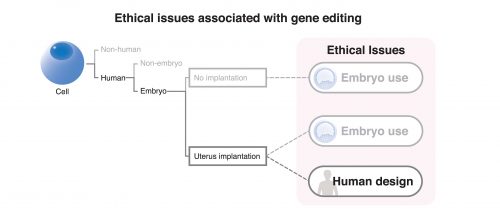Gene editing the human embryo
In the previous newsletter, I described some of the special ethical issues regarding the genome editing of human embryos, namely the use of human embryos for research and the potential of creating living human beings from edited embryos. In this essay, I would like to delve deeper into this second consideration.
The idea of genome edited embryos being nurtured to birth is fraught with risk, since the technology is far from being established as safe. Currently, it is impossible to predict what effects genomic changes to the embryo will have on health. Further, who will have authority for permitting these changes and who will be responsible should unforeseen effects occur?
However, there is reason to believe that with proper development in the technology, genome editing of the embryo can be an effective treatment for genetic diseases that exist before birth, literally giving a life that would not be given otherwise. At the same time, as these methods become safer and cheaper, there will undoubtedly be pressure on parents to have the embryo modified before birth in the case a deleterious mutation is identified. There is also reason to worry that for children who have not had their genes edited, they risk being marginalized since society may view them as people who have chosen their own burden.
Another concern often considered in these discussions is designer babies, as genome editing of the embryo allows for one to choose skin color, eye color, and pretty much anything else that is inscribed in our genetic code. It might even be possible to eventually design one’s talent or personality. Moreover, how specific can we be? Will we be designing children with specific muscle development explicitly to win Olympic medals or, even more dystopic, maybe wars? How far can this technology go and how far will we let it?
Finally, one major difference about genome editing the embryo compared with other cells in the body is the inter-generational effect of the change. Changing the genome of the embryo means that these changes will be passed to the offspring. Thus, any unexpected effects will be difficult to remove from the population.
This past Dec. 3rd, several academies and societies declared current genome editing of embryos that can be returned to the uterus and nurtured to birth as irresponsible. However, as this technology advances, these same concerns will emerge again.
(The second of a two-part series)

by Associate Prof. Misao Fujita, Uehiro Research Division for iPS Cell Ethics
